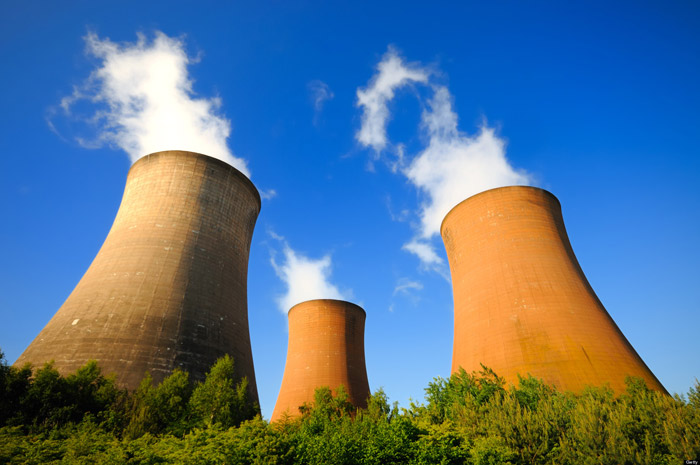The announcement by Lockheed Martin this week that it is developing a comparatively cost-effective nuclear fusion reactor was met with immediate skepticism by environmental groups.
Greenpeace called the revelation a “safety and security nightmare” in a press release. Though there are legitimate concerns over the company’s optimism that it could get a reactor up and running in 10 years, it is clear that the blowback has little to do with the plan and more to do with unwavering and dated anti-nuclear stereotypes. Instead of immediately dismissing nuclear energy as dangerous and harmful to the environment, those concerned about climate change and greenhouse gas emissions should instead encourage the safe and comprehensive expansion of nuclear power as a part of a greater shift away from fossil fuels.
It is clear that environmentalists are correct in asserting that a shift from using fossil fuels for electricity to renewables is needed; however, it is much less clear how and when exactly that shift can happen. In Germany, the hasty shutdown of all national nuclear reactors following the Fukushima disaster led to a predictable gap in energy production, forcing the country to burn more toxic coal and natural gas. Nuclear energy is the key to filling the gap between effective but harmful fossil fuels, and friendly but currently inefficient renewable energy.
The primary concern environmentalists have with nuclear power is the supposedly unsafe nature of its production. The biggest accidental disasters in nuclear history, namely the ones occurring at Three Mile Island, Chernobyl, and Fukushima, have instilled a lingering and unwarranted distrust of nuclear power among environmentalists and the public alike. In comparison, little attention is given to other environmental disasters caused by energy production. In 2013, more than 1.15 million gallons of crude oil spilled from trains in the U.S. alone. Nuclear power is still a much safer method of generating baseload electricity than fossil fuel production, and new generation reactors are much safer, smaller, and more cost-effective.
Groups like Greenpeace have also pointed out that there is a significant concern over where to put nuclear waste generated as a byproduct from reactors. While this is a genuine concern, advances in technology have greatly helped to alleviate this problem. New generations of reactors are much more efficient, producing significantly less waste and even reusing spent fuel rods. Currently, five per cent of the cost of nuclear production is attributed to dealing with nuclear waste; increasing that number to 10 per cent or more would lead to crucial and necessary research and potentially finding a permanent, international location for waste storage.
Another oft-cited notion by environmentalists is the idea that renewables like wind and solar are a cheaper and more efficient alternative to nuclear. However, studies by British and American energy commissions found that wind and solar are more expensive per kilowatt/hour than advanced nuclear reactors. Apart from hydroelectric or geothermal generated power, nuclear is the cheapest among non-fossil fuel power sources. Nuclear energy is also more effective and reliable, with no variance in production based on the weather, and renewables are challenging to integrate into the existing power structure.
Further research can and should be done on both renewables and nuclear energy production. Studies show that the cost of wind power will drop 25 per cent over the next two decades and that the cost of solar production will be cut in half by 2020, indicating that eventually renewables will be cheap enough to bear the load of increasing energy demands. For now though, nuclear energy is a consistent, reliable, and ecologically friendly way for countries to wean themselves off fossil fuels. Yet instead of looking for sensible solutions to solvable problems, environmentalists immediately seek to discredit and vilify any attempt by scientists or engineers to advance nuclear power. Environmentalists need to stop using stale rhetoric to demonize nuclear energy because of a few high-profile mishaps, and embrace nuclear energy for what it is: An intelligent, transitory solution towards a greener, healthier planet.









I’m enjoying the increasingly consistent divide of the Tribune choosing science and facts versus the Daily’s preference of pseudoscience and hysteria